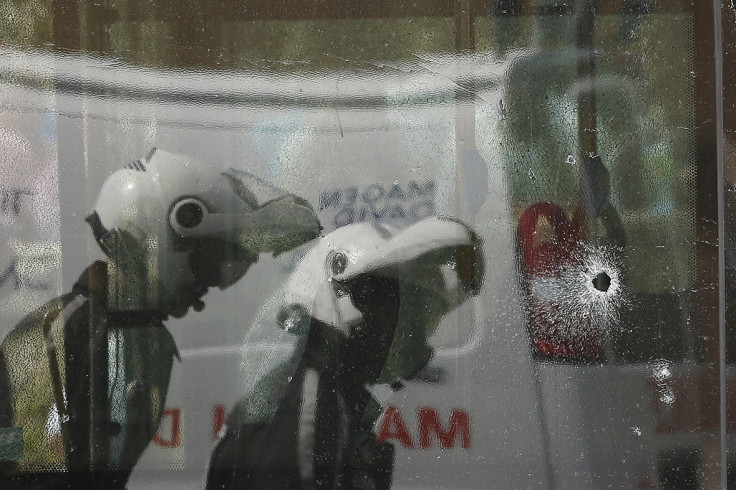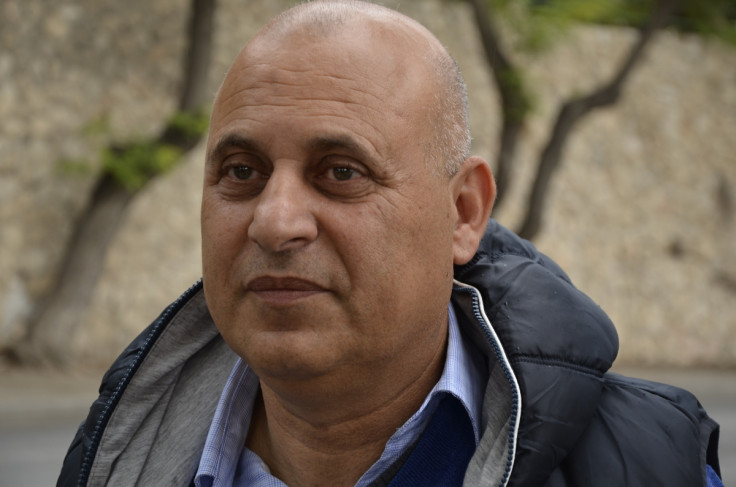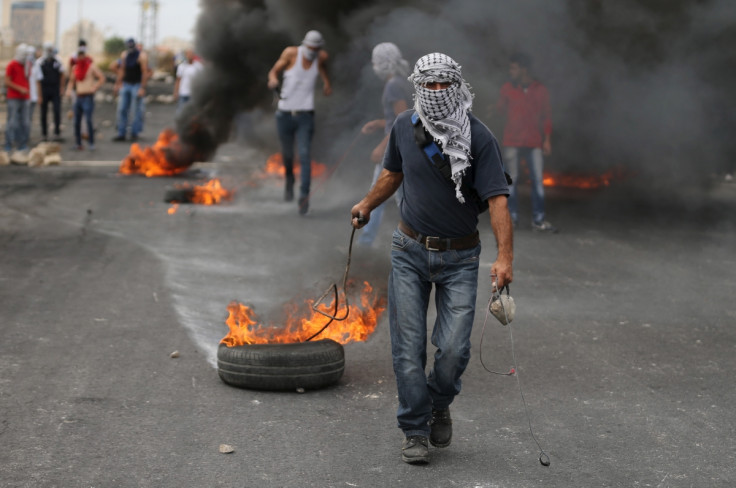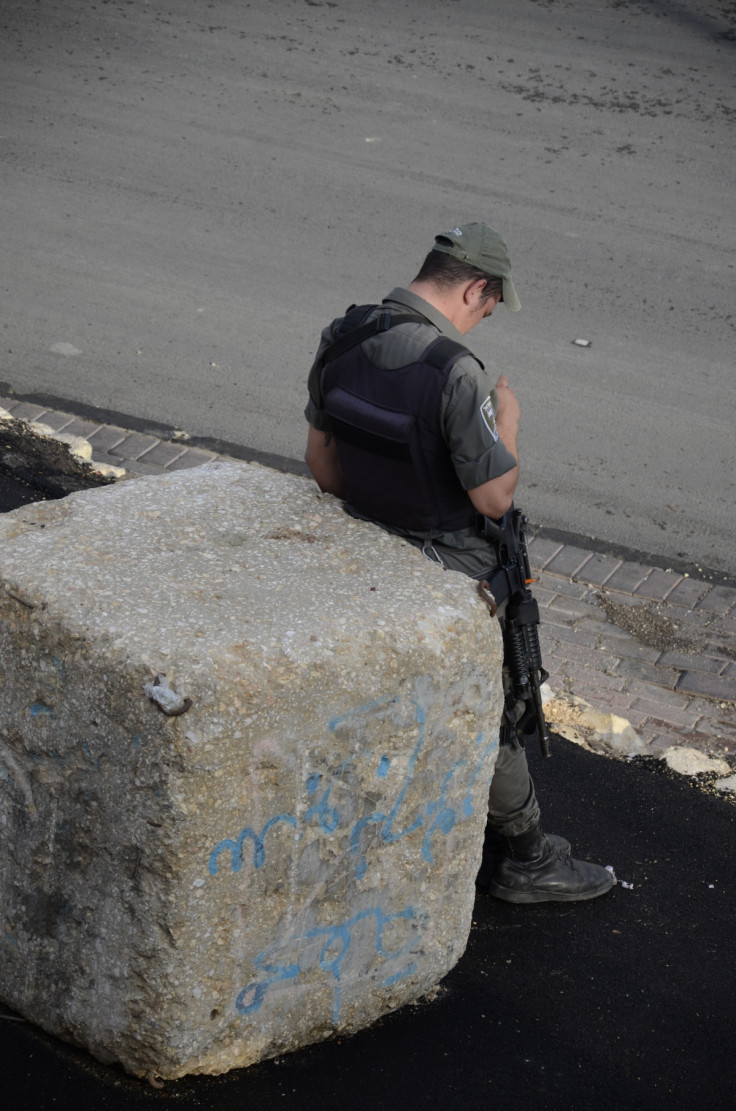Hunted in Jerusalem: Life and death of Israelis preyed upon by the stabbing intifada's 'lone wolves'

The windows are steamed-up on the crowded number 78 bus as teenage boys talk loudly in Hebrew, passengers in Jewish kippah and Muslim headscarves sit side-by-side, and an immaculately dressed elderly woman who reads a novel in French sits next to a man in a long black coat.
The scene is typical on the distinctive green Egged bus that plies the Jerusalem suburbs, weaving its way into Armon Hanatziv, a Jewish neighbourhood that adjoins the Palestinian east Jerusalem neighbourhood Jabel Mukabar, a district that has in recent weeks become synonymous with violence as home to at least five of the 16 alleged attackers in the so-called knife intifada that has swept Israel and the West Bank.
As it skirts the boundary between the Arab and Jewish parts of town, it pulls to a stop on the eerily quiet Olei HaGardom Street. Two weeks ago, this spot was the scene of a violent and bloody attack when Baha Alliyan, 22, and Bilal Ranem, 23, shot and stabbed passengers in a frenzied attack that left two people dead and 15 injured.
We've stopped riding the buses and today was the first day my daughter walked to school again
Border police boarded the bus and shot Alliyan and Ranem dead. Two passengers – Haviv Haim, 78, and Alon Goberberg, 51 – were killed at the scene, while a third, 76-year-old resident, Richard Lakin, died in hospital from wounds he sustained during the attack.
Sheryl Abbey, a mother of three, heard the noise of the bus attack and could see it from the window of her home office. She said their family had many sleepless nights after the attack and she was worried about her 13-year-old daughter Maayan and 15-year-old son Ezra being out on the streets. Weeks later, she won't take the number 78.
"We've stopped riding the buses and today was the first day my daughter walked to school again. These things come in waves and we learn how to ride them. During the second intifada, things would peak and then go again," she said.
Abbey told IBTimes UK local families had set up car-pooling systems in order to keep their children safe after the bus attack. For her, the memories of the brutal violence of the Second Intifada, 2001-05, is still raw. She recalls the bombing of Hillel Cafe in the German Colony when a suicide bomber entered the cafe late one evening on September 2003, killing himself and seven Israelis and injuring 50.
"It was a very traumatic time for us, our living room was filled with blood – we were taking in the injured and traumatised people because our house was behind the café," Abbey said.

Lakin, who died this week in hospital, was a father of two and grandfather of eight and was on his way to the doctor when the bus came under attack. The 76-year-old, who moved to Israel from Connecticut with his wife Karen and teenage children 32 years ago, was critically injured when he was shot in the head and stabbed in the chest three times.
The family was active in the American civil rights movement and while in Israel, they opened a business teaching English to people from all ages and backgrounds. Lakin taught up until the day he was shot and was working with many local Palestinian children. He wrote two books, one of them was Teaching As An Act Of Love.
Another resident, Gill Schecter, 42, lives around the corner from where the bus attack occurred. She has lived on Meir Nakar Street for five years and has three children, one who has suffered from post-traumatic stress after a wave of violence directed at the neighbourhood.
Their leafy green street runs into a cul-de-sac and then heads into a pedestrian access way and a bright children's playground. This seemingly quiet street that runs along the seam line of Jabel Mukaber has recently become a frontline of Palestinian violence from Jabel Mukaber directed at Jewish Israeli residents.

The Jewish neighbourhood was built in 1973 on land Israel captured in the Six Day War and is considered an illegal settlement under international law. The Israeli government sought to unify Jerusalem by encouraging the Jewish and Palestinian neighbours to share playgrounds, clinics and supermarkets but after 50 years, the division between Arabs and Jews here is more profound than ever.
At the end of September, Schecter claims, over one 10-day period his neighbour's property was hit with firebombs 17 times in 10 days sparking fires inside the home and garden. His own backyard was targeted on 31 July when a firebomb was lobbed over the tall stone wall that divides it from Abu Rabi'a Street, a main thoroughfare that weaves its way through Jabel Mukaber below.
"It happened during shabbat and thankfully we weren't there, the neighbours called the fire brigade and the put out the fire, but it was right next to our bedroom," he said.
"We told police they needed to sort the situation, or we would take matters into our own hands and use our right to self-defence. We are armed with guns. The police came and sorted it out and are now there 24 hours a day, seven days a week and ever since we haven't had an incident."
Schecter said he wanted the police to stay there permanently and the neighbours were running free homemade food and hot drinks to the police and have provided them with shelter.
Abu Rabi'a Street
Residents of Armon Hanatziv used to shop in the busy bakeries and shops on Abu Rabi'a Street, while Palestinian neighbours were slowly stopping coming up to the Jewish Israeli neighbourhood to use banking facilities, the postal service and the supermarket, Schecter said, but that has all stopped now.
"There used to be understanding and respect, but now it's reached zero – there's no connection or respect, and no one dares to go down," he said.
The wave of violent attacks in month have seen 64 Palestinians shot dead and 11 Israelis killed and scores injured. Israel's security cabinet moved to block off parts of East Jerusalem including all entry points to Jabel Mukaber and Palestinian residents experience severe delays getting to work and face humiliating checkpoints and strip searches. But residents here say that the measures are necessary.
"We don't want to be blocking the entrances to Jabel Mukaber for people driving in and out. None of us want Israel to impinge on people's ability to move, we want to have a unified city – but we also want to feel secure," said Abbey.
Schecter agreed: "Of course the closures and measures placed on Jabel Mukaber are harsh, they are collective punishment. But when we witness teens throwing stones and firebombs while others in the village watch and let them do it and do not stop them, then collective measures are needed. We need to show we mean business when three people in our community have died."

The Shaltiel Community Center has been running drop in activities and providing a psychologist service for children and families after the bus attack in their neighbourhood. Chairman Yehuda Ben Yosef said the roots of this autumn's violence date back to the abduction and murder of the three Israeli teenagers and Palestinian teenager Mohammed Abu Khdeir, who was kidnapped and burned alive in 2014.
That was when the stone-throwing and firebombs began, although there has been a marked increase since the violence that followed the unrest over al-Aqsa mosque.
"I am surprised that it didn't escalate earlier, we have been expecting something since March or April – the warning signs have been there for a long time as the radical elements of Judaism and Islam have been clashing over al-Aqsa and Temple Mount," he said, adding that not all Palestinians support the renewed violence.
"The people making the trouble are a minority in Jabel Mukaber, it's not the majority and it's very sad. Most people just want to get on with their lives and see their children grow up."
Back on the number 78 bus, another passenger, Yoav, who did not want to give his surname, told IBTimes UK that there is more hysteria in the air today. While the Second Intifada was more dangerous, there was less fear.
"Back then you would hear explosions and see attacks all the time and you still rode buses, I was a music student at Hebrew University at the time and we had no choice, we were poor," he said. "Today there is more fear in the air, but the level of violence isn't as high yet."
© Copyright IBTimes 2025. All rights reserved.






















